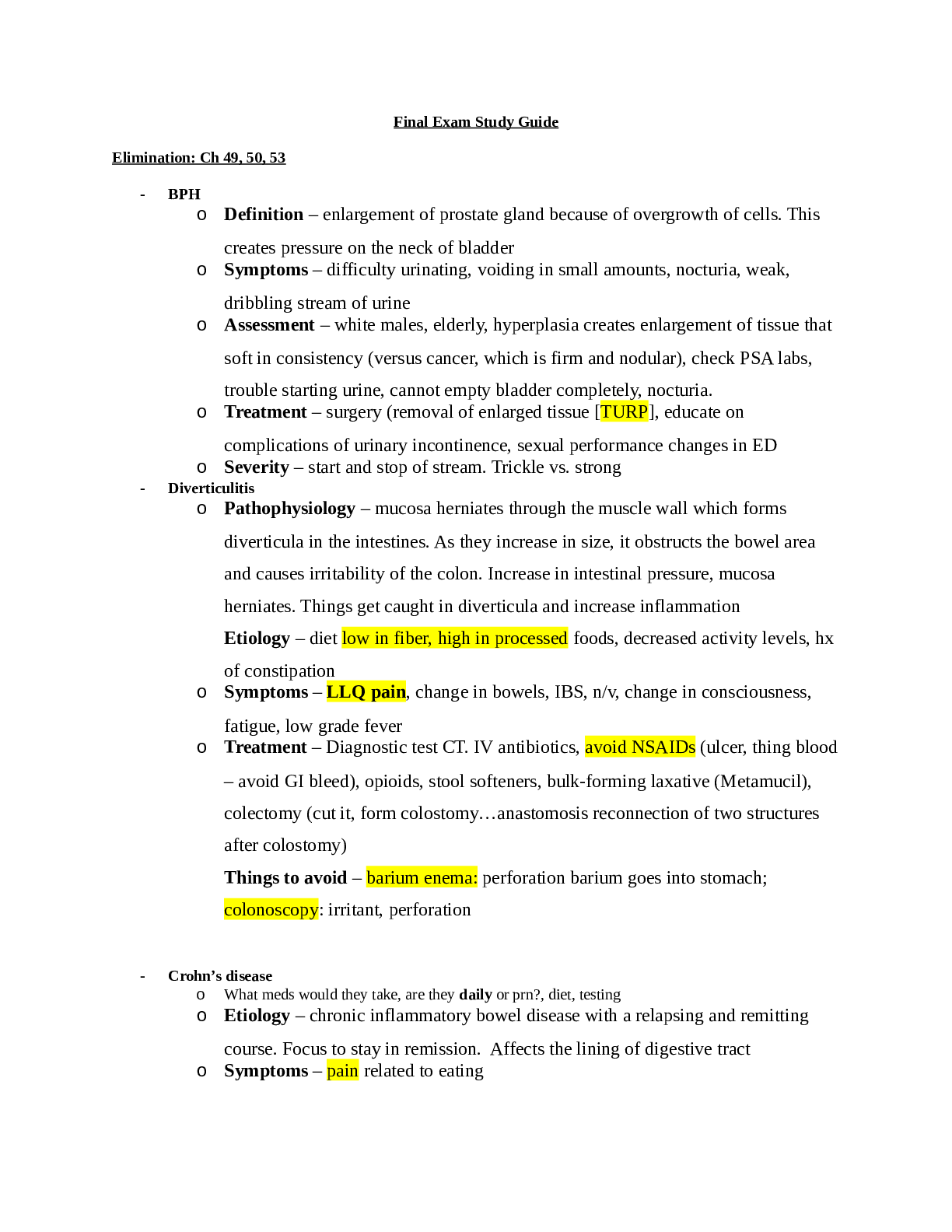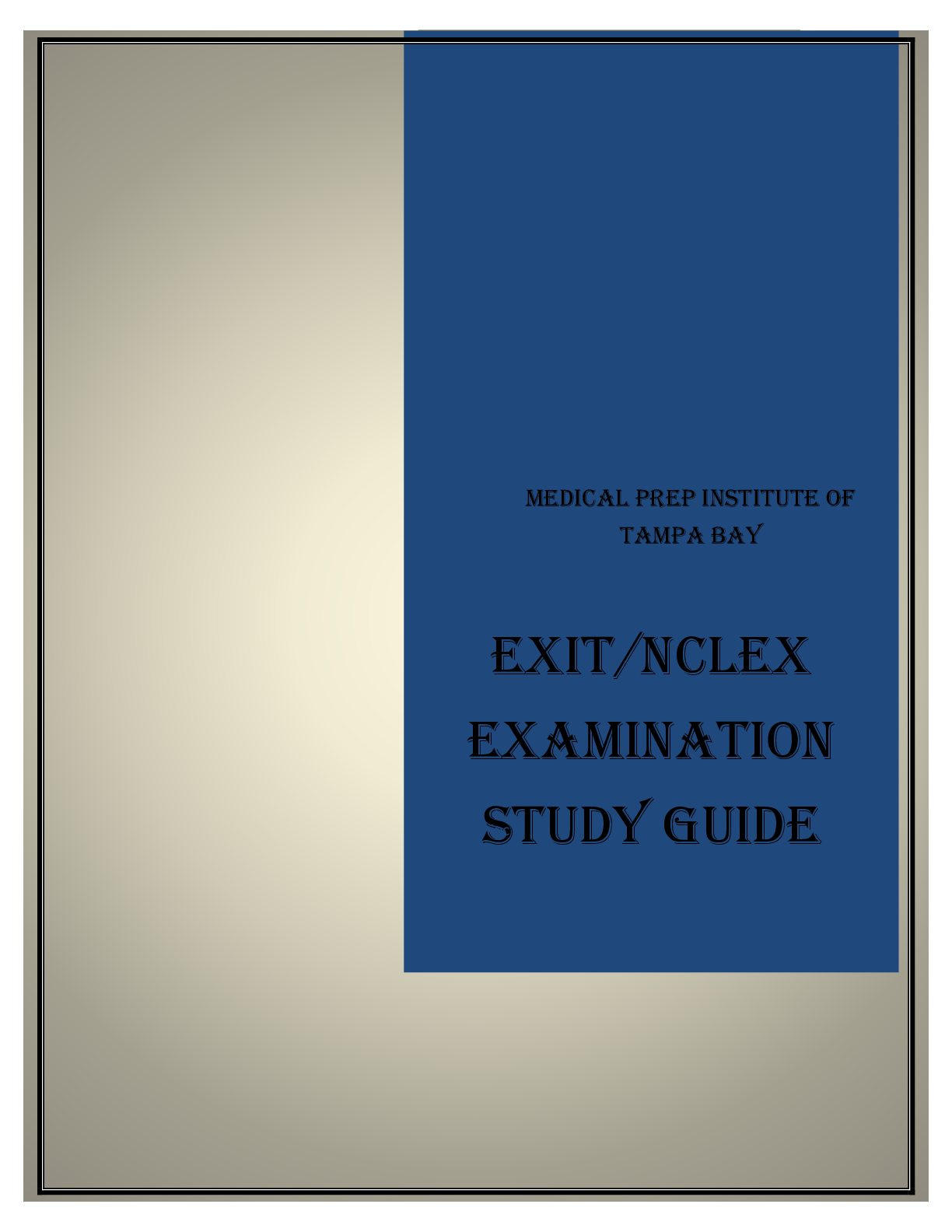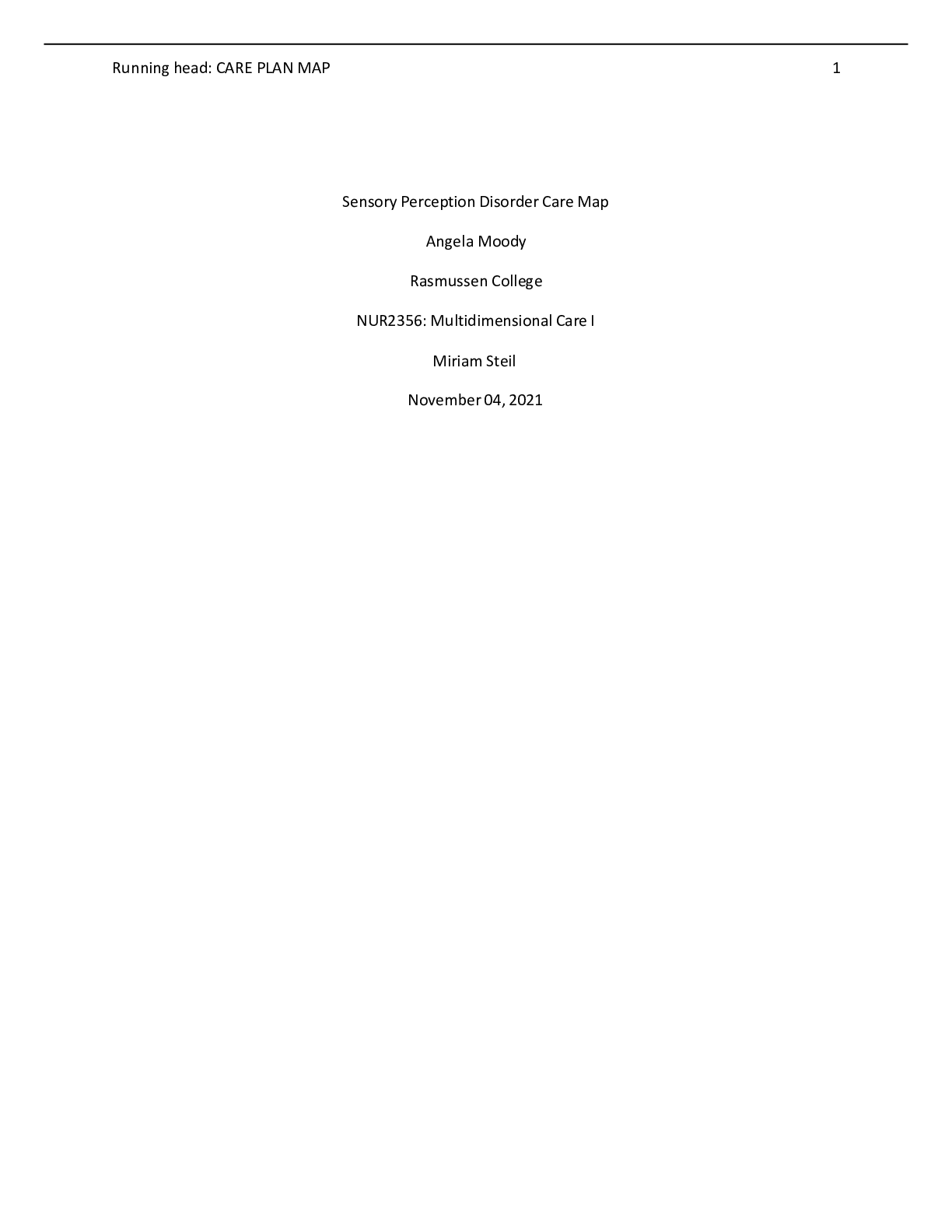Biology > STUDY GUIDE > Northern Arizona University BIO 310 Quiz 6 Document.docx (All)
Northern Arizona University BIO 310 Quiz 6 Document.docx
Document Content and Description Below
DEVELOPMENT OF EVOLUTIONARY THEORY Table of Contents Pre-Renissance Thought | The Age of the Earth | Evolutionary Thought During the 1770's Evolution by Natural Selection | Natural Selection and G... enetics | Links Pre-Renissance Thought | Back to Top The Ancient Greek philosopher Anaxiamander (611-547 B.C.) and the Roman philosopher Lucretius (99-55 B.C.) coined the concept that all living things were related and that they had changed over time. The classical science of their time was observational rather than experimental. Another ancient Greek philosopher, Aristotle developed his Scala Naturae, or Ladder of Life, to explain his concept of the advancement of living things from inanimate matter to plants, then animals and finally man. This concept of man as the "crown of creation" still plagues modern evolutionary biologists (See Gould, S.J., Wonderful Life, 1989, for a more detailed discussion). Post-Aristotlean "scientists" were constrained by the prevailing thought patterns of the Middle Ages -- the inerrancy of the biblical book of Genesis and the special creation of the world in a literal six days of the 24-hour variety. Archbishop James Ussher of Ireland, in the mid 1600's, calculated the age of the earth based on the geneologies from Adam and Eve listed in the biblical book of Genesis, working backward from the crucificxion. According to Ussher's calculations, the earth was formed on October 22, 4004 B.C. These calculations were part of Ussher's History of the World, and the chronology he developed was taken as factual, even being printed in the front pages of bibles. Ussher's ideas were readily accepted, in part because they posed no threat to the social order of the times; comfortable ideas that would not upset the linked applecarts of church and state. Geologists had for some time doubted the "truth" of a 5,000 year old earth. Leonardo da Vinci (painter of the Last Supper, and the Mona Lisa, architect and engineer) calculated the sedimentation rates in the Po River of Italy, and concluded it took 200,000 years to form some nearby rock deposits. Galileo, convicted heretic for his contention that the earth was not the center of the Universe, studied fossils (evidence of past life) and concluded that they were real and not inanimate artifacts. James Hutton, regarded as the Father of modern Geology, developed (in 1795) the Theory of Uniformitarianism, the basis of modern geology and paleontology. According toHutton's work, certain geological processes operated in the past in much the same fashion as they do today, with minor exceptions of rates, etc. Thus many geological structures and processes cannot be explained if the earth is only 5000 years old. British geologist Charles Lyell refined Hutton's ideas during the 1800s to include slow change over long periods of time; his book Principles of Geology had profound effects on Charles Darwin and Alfred Wallace. The Age of the Earth | Back to Top Radiometric age assignments based on the rates of decay of radioactive isotopes, not discovered until the late 19th century, suggest the earth is over 4.5 billion years old. The Earth is thought older than 4.5 billion years, with the oldest known rocks being 3.96 billion years old. Geologic time divides into eons, eroas, and smaller units. An overview of geologic time may be obtained [Show More]
Last updated: 2 years ago
Preview 1 out of 91 pages

Buy this document to get the full access instantly
Instant Download Access after purchase
Buy NowInstant download
We Accept:

Reviews( 0 )
$18.00
Can't find what you want? Try our AI powered Search
Document information
Connected school, study & course
About the document
Uploaded On
May 27, 2021
Number of pages
91
Written in
Additional information
This document has been written for:
Uploaded
May 27, 2021
Downloads
0
Views
49













